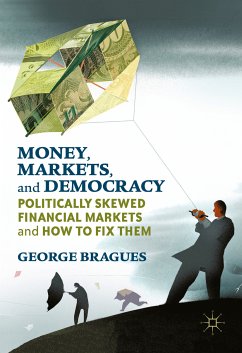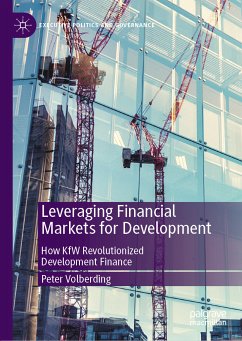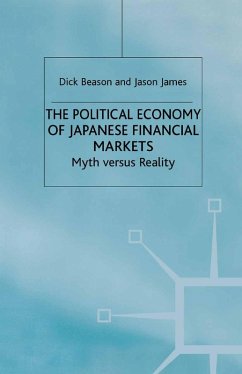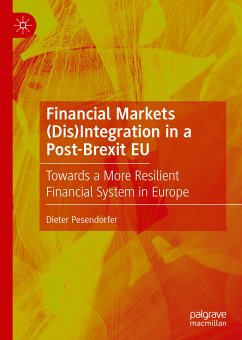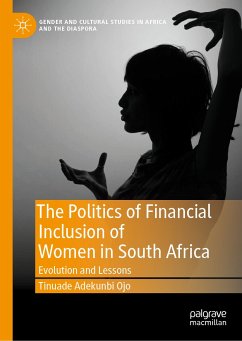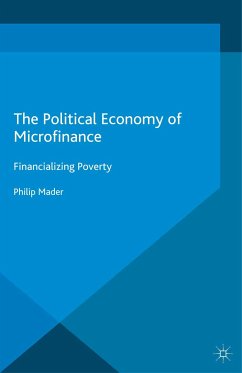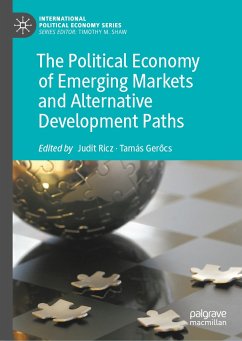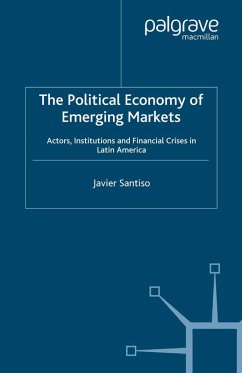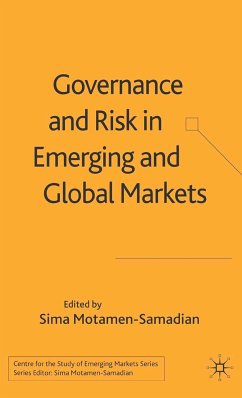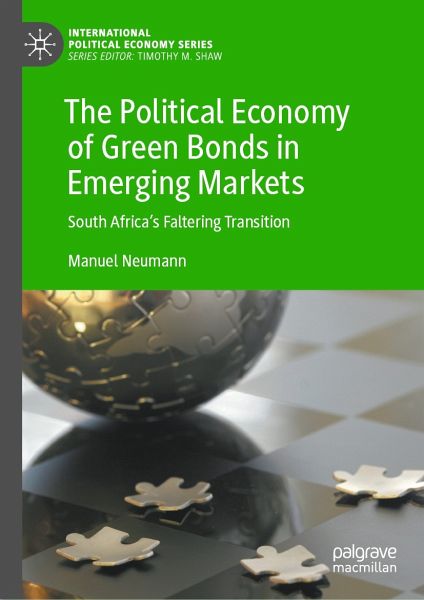
The Political Economy of Green Bonds in Emerging Markets (eBook, PDF)
South Africa's Faltering Transition
Versandkostenfrei!
Sofort per Download lieferbar
88,95 €
inkl. MwSt.
Weitere Ausgaben:

PAYBACK Punkte
44 °P sammeln!
Funding low-carbon transitions to address climate change is one of the major challenges of our time. Green bonds have emerged as a powerful tool to enlist institutional investors' wealth for these transitions. But despite exponential growth in many parts of the world, the green bond market in South Africa has been stalling. This book project grapples with this puzzle. Firstly, it debunks some of the promises underpinning green bond markets and traces the manifold practices undergirding its promotion. Secondly, it identifies some barriers prohibiting the expansion of green bonds in emerging mar...
Funding low-carbon transitions to address climate change is one of the major challenges of our time. Green bonds have emerged as a powerful tool to enlist institutional investors' wealth for these transitions. But despite exponential growth in many parts of the world, the green bond market in South Africa has been stalling. This book project grapples with this puzzle. Firstly, it debunks some of the promises underpinning green bond markets and traces the manifold practices undergirding its promotion. Secondly, it identifies some barriers prohibiting the expansion of green bonds in emerging markets and zooms in on the depoliticizing tendencies a transition premised on financial innovation produces. Thirdly, this work discloses the idiosyncratic political economic challenges of a fossil-based economy in transition and shines a light on the competing elements of a 'green' and a 'just' transition. It argues that the limited uptake of green bonds can best be explained by the instrument's inability to adequately incorporate the various demands levied on South Africa's contested transition trajectory. In so doing, this book contributes important new qualitative insights into green bond markets-in-the-making and extends political economic scholarship on finance-led transition endeavors in emerging markets.
Chapters 3 and 6 is available open access under a Creative Commons Attribution 4.0 International License via link.springer.com.
Chapters 3 and 6 is available open access under a Creative Commons Attribution 4.0 International License via link.springer.com.
Dieser Download kann aus rechtlichen Gründen nur mit Rechnungsadresse in A, B, BG, CY, CZ, D, DK, EW, E, FIN, F, GR, HR, H, IRL, I, LT, L, LR, M, NL, PL, P, R, S, SLO, SK ausgeliefert werden.



